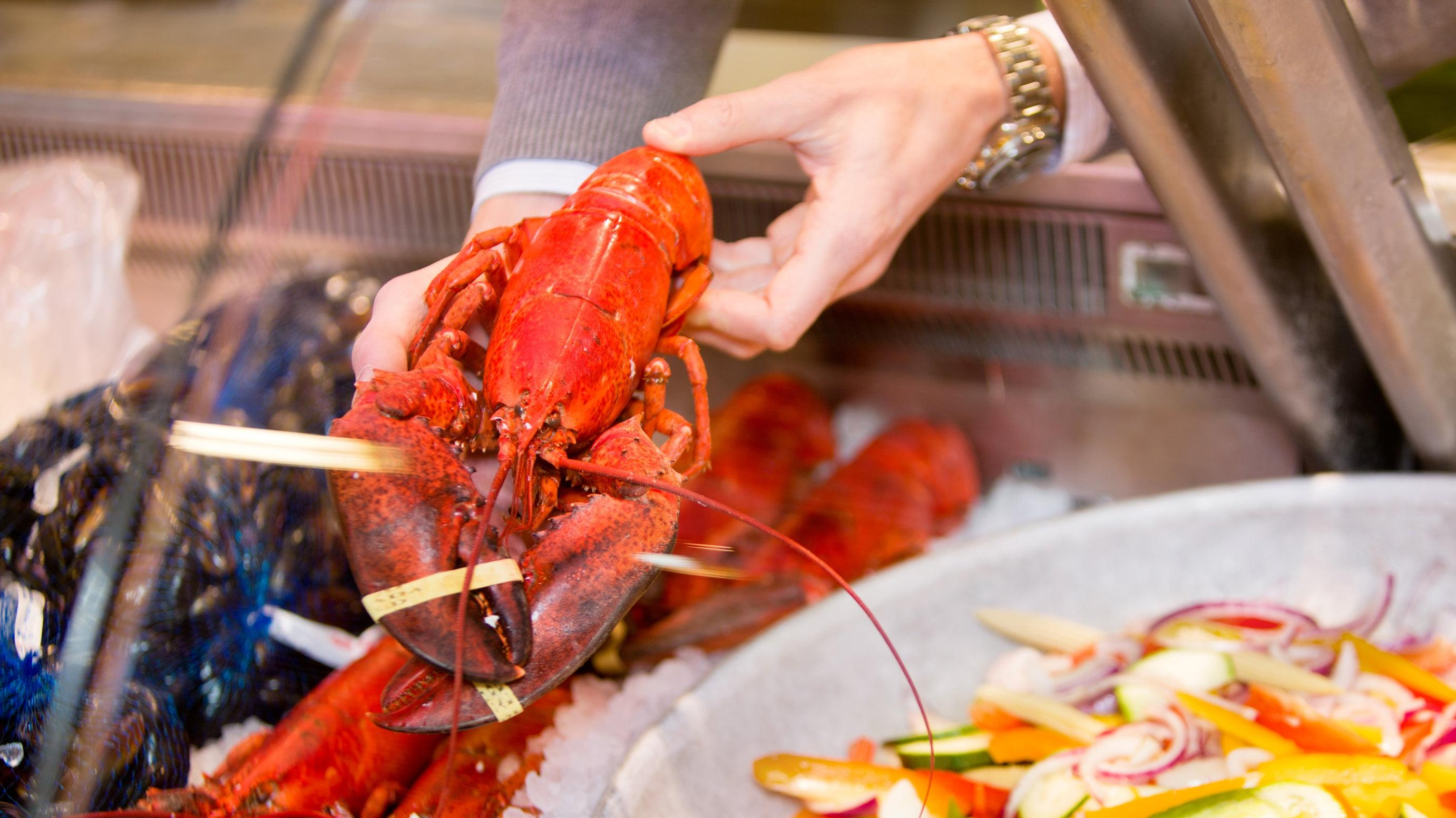Maine Lobster Is Gone From Whole Foods
Environmental groups are asking major retailers to stop buying Maine lobster.
If you were getting ready to grab some lobster for your upcoming feast of seven fishes or New Year's dinner, you might want to reevaluate your menu: Whole Foods is leading the charge in pulling Maine lobsters from its stores due to environmental concerns. This is quite a blow to the supply, because according to the National Oceanic and Atmospheric Administration (NOAA), Maine has led American lobster landings for the past 30 years and combined with Massachusetts provides 93% of the total American lobster harvest. Seafood-monitoring groups are keeping a close watch on the industry to continue to alert major retailers about which products are sustainable and which aren't.
Why Maine lobster is currently not sustainable
According to NPR, Seafood Watch, a program of California's Monterey Bay Aquarium, and environmental nonprofit Marine Stewardship Council (MSC) flagged the negative environmental effects of fishing for lobsters in Maine. Seafood Watch assigned a "red" rating to Maine lobsters in September because gear required to trap lobsters poses a threat to endangered whales who could get tangled in things like vertical lines. MSC suspended its sustainability certificate for the Gulf of Maine fishery because it did not meet federal conservation standards.
These actions caught the attention of not only Whole Foods, but also meal kit companies Hello Fresh and Blue Apron, all of which have since stopped buying Maine lobster. Whole Foods has had a company policy in place since 2012 to pay attention to these conservation organizations—the grocery chain requires all of its wild-caught seafood sold in stores either be certified by MSC or rated green or yellow by Seafood Watch.
According to NOAA, around 85% of whales have become entangled in fishing gear at least once, and even those who are removed go on to deal with injuries and stress that decrease their quality of life. The Administration is now holding fisheries to task, encouraging them and other environmental organizations to develop safer forms of gear and fishing methods while also requiring fisheries to reduce the number and strength of lines in the water.
It's worth noting that some Whole Foods customers will continue to be able to find and purchase lobster at their nearest location for the time being, since the lobster currently on sale was purchased before these new developments came to light.
"Maine lobster that was procured while still under the active MSC certification (prior to suspension) or under an active MBA yellow rating is and will continue to be sold in our stores," a spokesperson for Whole Foods Market told The Takeout via email. "We are closely monitoring this situation and are committed to working with suppliers, fisheries, and environmental advocacy groups as it develops."
While environmental groups are praising Whole Foods for its actions, Maine politicians and lobster fishers aren't as pleased, for obvious reasons. Maine's governor and congressional delegation released a joint statement expressing disappointment in both Whole Foods and MSC, saying that these actions harm the livelihoods of the fishermen and the industry at large, NPR reports. For now, until Seafood Watch and MSC's classifications change, fishing in the region will slow and Maine lobsters will be hard to come by for everyone.
